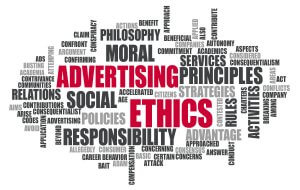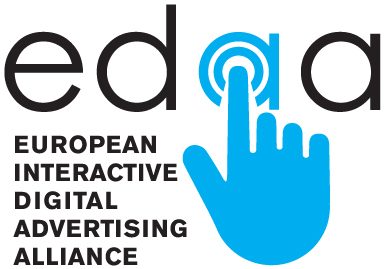
Copyright: InsightCreative
a blog piece by David Barron
On the surface, ethics is a simple concept: ‘doing the right thing’. But how can we delineate the question of what is right and wrong? Such a long-standing concern has beleaguered societies. This very question of right and wrong draws on good vs. evil, a fundamental philosophical debate about the very nature of human existence.
As the Internet evolves, it carries this question with it. Yet there is a nuance – we must be mindful that in the online advertising space, the conversation must be tilted to ‘doing the right thing for the consumer’. The Internet has developed at a pace that almost defies imagination, to host a vast trove of information and services that can be used to the betterment of societies. It serves many noble purposes: to disseminate information that is accessible to all, to democratise knowledge, and to promulgate the virtues inherent in free and open societies (freedom of speech, individual expression, the power of association). Journalistic content produced through a pluralistic media, that has a critical role in society to hold power to account, can flourish like never before. Minority interests are given a voice. Individuals and groups can use platforms to draw attention to their causes. This can, unfortunately, be equally subverted through bad faith, yet acts of violation should not allow us to lose sight of such positive attributes. Listing the benefits would be a book, not a blog post. Suffice to say the open Internet is many things to many people, and we owe it to ourselves to protect it. There is a lot at stake.
So the question of ‘ethics’ is more prevalent than ever. Whether you subscribe to ethical relativism, one of the several forms of Kant’s ethical utilitarianism, deontological ethics (Rawls and ‘distributive justice’) or ethical intuitionism, ‘ethics’ is itself an undeniably complex subject that has generated much philosophical, political and societal debate and triggered the imaginations and musings of many, yet no one single blueprint stands above all others. To me, ethics is based not on prescribed rules nor laws, neither on personal experiences nor values, but rather on a combination of all those factors; yet this combination is then inherently unique to me as an individual and gives little service or credence towards a collective application of ethics.
How then, can we apply ethics to an entire system of – in our case at hand – technology platforms and partners and the wider online media and advertising ecosystem? This can be best configured as a set of principles to which we collectively adhere to in order to improve society. Principles that serve as a guiding moral compass. Principles are unique in that they show us what ought to be done yet give us the flexibility to apply a code to our unique circumstances. This is especially important in business, where companies’ look to differentiate themselves and no ‘one size fits all’ is good enough. Principles help to harmonise our actions and behaviours whilst enabling their application to be specifically tailored to best effect.
When I reflect on our work and our purpose at EDAA, promulgating an ethics-based approach through a codified set of principles is just one area where I believe we truly stand out. Another key enabler to have governed perhaps the single greatest collective industry achievement in this space to-date, is that EDAA has been developed by a European industry coalition of associations that demonstrate collective commitments to instill trust and consumer-centrism across the value chain. Through our work, we help our participating companies, in turn improving the quality of digital advertising through entrenching openness and responsibility across the industry. Breaking ground to deliver on common commitments, which realise that very notion of ‘doing the right thing by the consumer’.
As regulation shines a spotlight on data privacy practices, as industry innovation makes real headway to tackle the challenges, and as consumers’ expectations are fundamentally shifting, there is still reason to be defiantly optimistic. “Transparency, choice and control” has been EDAA’s guiding mantra since its inception in 2012, when a group of companies with foresight and a desire to improve the status quo collectively aligned behind this banner. EDAA’s pan-European, cross-industry Programme has since grown to include major international and local players and is a standout example of what meaningful self-regulation can achieve when done right and when guided with integrity. Today, it is humbling to see solutions providers hard at work to distill those same aims of transparency, choice and control and as a result, a proliferation of companies, services and solutions is emerging.
I would add two things in this context – firstly, that across the digital advertising lunarscape we cannot afford a fragmented approach to these complex issues; and secondly, that we must think long-term and not jump on short-term solutions, no matter how tempting. I sincerely hope that we will collectively operate as EDAA has encouraged the market to do for almost a decade: collectively and collaboratively, evolving and delivering on societal commitments as an industry.
In closing, let’s look together to:
(i) uphold the values to which we subscribe;
(ii) remind ourselves of the importance of openness and transparency;
and perhaps most importantly of all,
(iii) put the consumer need, expectations and experience at the heart of our efforts.
EDAA, through a distinctive, principles-based ethical framework, helps the industry to configure its moral compass, in order to recognise and translate those values into manageable objectives.
We are not about legal compliance – a baseline that all companies must ensure they adhere to, regardless of their participation in the EDAA Programme. Separate tools and resources exist to facilitate this. Without a doubt, EDAA’s tools and resources can play a role here too, though the extent to which this is the case must be determined solely by each participant according to their specific business model and profile. Rather, EDAA is foremost about layering industry solutions on top of legal compliance: solutions that support business needs; solutions that support consumers; solutions that highlight best practice and self-governance to regulators. Solutions that offer us a common framework of understanding as to actions we should take to empower others and to follow, as best as possible, the basic premise laid out at the very start of this piece: “doing the right thing”.
But the right thing to do is altered with each subtle change in our surroundings, and digital advertising is evolving rapidly. We do not, could not, and should not determine this in isolation: we rely on the input and support of all of our participating companies as well as the industry trade bodies that sit together on our board, generously offering their commitment, time and leadership. We rely on a distinctly European network that responds to European particularities, but also on a broader global integration and collaboration with international partners and thought leaders. To this end, EDAA is proud to be independent, yet extensively involved in key global discussions: within W3C, Project REARC, and with our association members representing advertisers, agencies, direct marketers, platforms, publishers and media.
We are wholly committed to our purpose; we are always keen for conversation and we look forward to your support on this ongoing journey.






